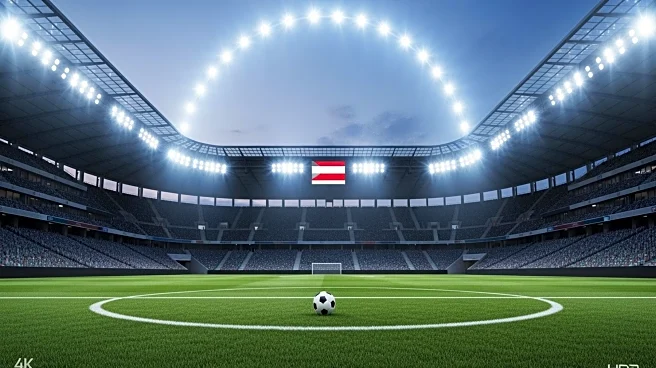What's Happening?
Jack Grealish, currently on loan to Everton from Manchester City, will be unable to play against his parent club due to Premier League loan restrictions. Grealish, who moved to Everton for the 2025/26
season, has been performing well, contributing a goal and four assists early in the campaign. However, the Premier League rules prohibit loaned players from participating in matches against their parent clubs, affecting Grealish's availability for the upcoming match at the Etihad Stadium on October 18 and the return fixture on May 2, 2026. This rule is specific to English football and aims to prevent conflicts of interest, although it is not commonly enforced in other European leagues.
Why It's Important?
The restriction on loan players facing their parent clubs is significant as it impacts team strategies and player development. For Everton, Grealish's absence in key matches against Manchester City could affect their performance and league standings. This rule also highlights the unique regulatory environment of English football compared to other leagues, where such restrictions are often negotiated individually. The situation underscores the complexities of player loans and the strategic considerations clubs must navigate, potentially influencing future loan agreements and player transfers.
What's Next?
Everton will need to adjust their lineup and strategy for the upcoming match against Manchester City without Grealish. The club may explore alternative options to fill the gap left by his absence. Additionally, this situation may prompt discussions within the Premier League regarding the fairness and impact of such restrictions, potentially influencing future policy changes. Clubs might also reconsider the terms of loan agreements to ensure they can field their strongest teams in crucial matches.
Beyond the Headlines
The restriction on loan players facing their parent clubs raises ethical questions about player autonomy and the fairness of contractual agreements. It challenges the notion of competitive integrity, as players are prevented from contributing to their loan club's success against their parent club. This situation could lead to broader discussions about the balance between contractual obligations and sporting fairness, potentially influencing future negotiations and league policies.










